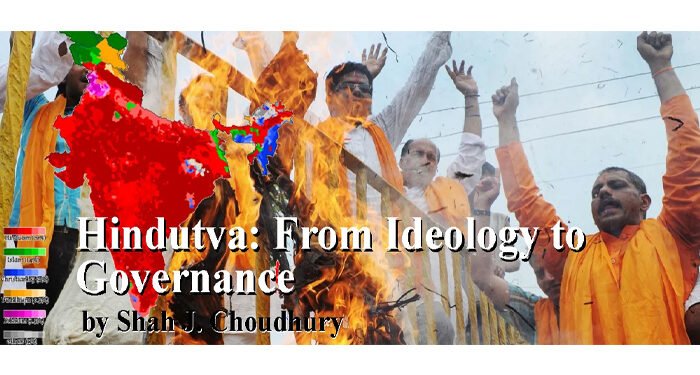
Shah J. Choudhury
Hindutva is not merely a cultural term; it is a political doctrine. First clearly articulated by Vinayak Damodar Savarkar in 1923 in his book “Hindutva: Who is a Hindu?”, it seeks to define Indian identity in explicitly Hindu terms. This ideology was institutionalized through the formation of the Rashtriya Swayamsevak Sangh (RSS) in 1925—a right-wing, Hindu nationalist organization that remains the ideological backbone of the ruling Bharatiya Janata Party (BJP).
For decades, Hindutva remained on the fringes of Indian politics. But with the BJP’s landslide victory in 2014 and again in 2019, that ideology transitioned from the margins to the mainstream. For the first time, a political party with a deep ideological commitment to Hindutva came to power with a strong majority, under the charismatic and authoritative leadership of Narendra Modi.
Signs of a Hindutva-Oriented State
Several developments under Modi’s government have led me to believe that India’s political and cultural direction is shifting toward majoritarianism:
• Mob Lynchings and Cow Vigilantism: Since 2014, there has been a marked rise in violence against minorities—especially Muslims and Dalits—accused of cow slaughter or beef consumption. These acts are often carried out by so-called “cow protection groups” that operate with impunity, emboldened by state silence or implicit approval.
• The Citizenship Amendment Act (CAA) and NRC: The CAA, passed in 2019, offers fast-tracked Indian citizenship to refugees from neighboring countries—except if they are Muslim. Paired with the National Register of Citizens (NRC), many fear it could lead to the disenfranchisement of millions of Muslims. This marks the first time religion has been explicitly used as a criterion in India’s citizenship law.
• Cultural Rewriting and Historical Revisionism: School textbooks have been revised to minimize or erase the contributions of Muslim rulers. Festivals and symbols associated with Hinduism are increasingly given official state support, while others are ignored or delegitimized. A single, homogenized version of Indian culture is being promoted.
• Revocation of Article 370 in Kashmir: While this move was framed as a national integration effort, the method—unilateral, without consultation with Kashmir’s people—reflected a centralizing, majoritarian impulse that ignored regional and religious sensitivities.
Media, Judiciary, and the Suppression of Dissent
Under Modi’s leadership, press freedom in India has declined significantly. Mainstream media has become increasingly deferential to the government, often silencing or discrediting critical voices. The term “Godi Media” (lapdog media) is now widely used to describe their behavior.
Universities and academic institutions are also under pressure. Students and scholars who criticize the government are branded “anti-national.” Dissent is increasingly criminalized, with sedition and anti-terror laws used to silence opposition.
A Personal Concern
In my view, India’s true strength lies in its diversity. The nation has always been a mosaic of religions, languages, and cultures. The Hindutva project, however, seems to aim for a singular identity—rooted in religion, language, and culture—that excludes and marginalizes others.
This transformation doesn’t just affect minorities. It endangers the very foundation of Indian democracy—where the state was meant to protect all, regardless of religion, caste, or creed.
Conclusion
Hindutva is not just an ideology; it is becoming a mode of governance. India is now at a crossroads. The direction it takes will determine whether it remains a secular, inclusive democracy or continues down the path of religious majoritarianism.
As a citizen, I express my deep concern. I believe that true patriotism lies not in blind support of power, but in the defense of constitutional values, diversity, and human dignity.
History may well remember this era as a turning point—when the soul of India was being reshaped, and the choice to speak up or stay silent made all the difference.
Stay well and love.

























